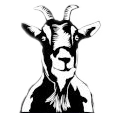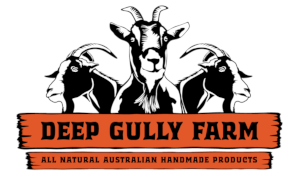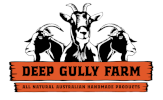


Welcome
We farm on 110 acres at the foot hills of Mt Martin in the Pioneer Valley, Queensland.
Milking goats is our daily norm here, to share your time with such beautiful animals is a gift in itself, however to be able to make wholesome, healing products from that relationship is priceless!
Our product range is based on ingredients that can be sourced from our Australian Island, if it can be grown sustainably & processed in this country then that is where the development stage of our recipes start.

Goat milk soap is a traditional soap made through the process of saponification. Naturally high in saturated and unsaturated fat, goat milk creates a soap that is creamy, gentle, and nourishing.
Goat milk soap is exactly what it sounds like — soap made from goat’s milk. It has recently gained popularity, but using goat milk and other fats for cosmetics and soaps stems back thousands of years.
Goat milk soap is made via the traditional soap-making process known as saponification, which involves combining an acid — fats and oils — with a base called lye.
In most soaps, lye is made by combining water and sodium hydroxide. However, when making goat milk soap, goat milk is used instead of water, allowing for a creamier consistency due to naturally occurring fats.
Goat milk is rich in both saturated and unsaturated fats, making it ideal for soap production. Saturated fats increase a soap’s lather — or production of bubbles — while unsaturated fats provide moisturizing and nourishing properties.
Additionally, other plant-based oils like olive or coconut oil can be used in goat milk soap to further increase the content of healthy, nourishing fats.
Most commercially made soaps contain harsh surfactants that can strip your skin of natural moisture and oils, leaving it feeling dry and tight.
To maintain your skin’s natural moisture, it’s best to use products that don’t remove the natural fats in the skin barrier.
Goat milk soap boasts high amounts of fats, particularly caprylic acid, allowing for gentle removal of dirt and debris without removing the skin’s natural fatty acids
Goat milk is rich in fatty acids and cholesterol, which make up a large portion of the skin membrane. A lack of these components in your skin can lead to dryness and irritation.
Furthermore, the milk is a good source of vitamin A, a fat-soluble vitamin shown to have anti-aging properties.
Finally, it’s a good source of selenium, a mineral shown to support a healthy skin membrane. It may even improve psoriasis symptoms like dry skin.
Goat milk soap may support a healthy skin microbiome — the collection of healthy bacteria on your skin’s surface.
Due to its gentle dirt-removing properties, it doesn’t strip your skin’s natural lipids or healthy bacteria. Maintaining your skin’s microbiome improves its barrier against pathogens, potentially preventing various skin disorders like acne and eczema.
Moreover, goat milk contains probiotics like Lactobacillus, which is responsible for producing lactic acid. It has been shown to have anti-inflammatory effects in the body, including the skin
Due to its lactic acid content, goat milk soap may help control or prevent acne.
Lactic acid is a natural exfoliant that gently removes dead skin cells, which helps prevent acne by keeping pores clear of dirt, oil, and excess sebum.
Moreover, goat milk soap is gentle and may help maintain the skin’s moisture. This is unlike many face cleansers containing harsh ingredients that can dry out the skin, potentially leading to excess oil production and clogged pores.
Although promising, treatment for acne varies from person to person. Therefore, consult your dermatologist or other healthcare professional to ensure you’re using the best product for your skin.
Goat milk soap is a gentle, traditional soap with many potential benefits.
Its creaminess lends well to conditions like eczema, psoriasis, and dry skin, as it keeps skin nourished and hydrated thanks to its non-stripping properties.
Moreover, this soap may help keep your skin youthful and acne-free due to its content of exfoliating lactic acid, although more research is needed.
If you’re looking for a soap that isn’t harsh and keeps your skin healthy, goat milk soap may be worth a try.


